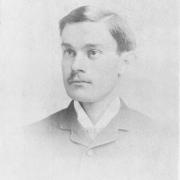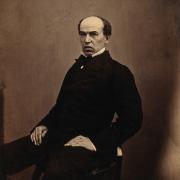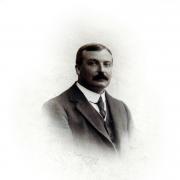The 1,000-year-old Confederation of the Cinque Ports once formed the country's first line of defence again invasion from the continent. Today, its history is intertwined with Kent's past, present and future
THE CINQUE PORTS: Havens of Kent
The 1,000-year-old Confederation of the Cinque Ports once formed the country’s first line of defence again invasion from the continent. While its role today might be largely ceremonial, the history of the Cinque Ports is intertwined with Kent’s past, present and future
In the beginning…
Despite this country’s proud naval history there was a time when our rulers were dependent upon foreign mercenaries to protect the coastline. The Cinque Ports were the solution.
Five towns (Hastings, New Romney, Hythe, Dover and Sandwich) along the Kent and Sussex coast were charged with providing men and ships for the Crown in return for certain privileges.
Although the earliest known charter in relation to The Cinque Ports dates from 1260, it’s believed that Edward the Confessor was the first monarch to establish a relationship between the ports and the Crown. And by the reign of Henry II, the towns were already known collectively as the ‘Cinque (pronounced ‘sink’) Ports’.
Who are they?
The name implies that there are five ports, and originally this was the case. But as time went on the logistical strain of supplying the King’s ships meant that other towns (or ‘Limbs’) were brought into the Confederation to support the original (or ‘Head’) ports.
For Kent this meant the inclusion of towns such as Lydd, Faversham, Folkestone, Deal, Tenterden, Margate and Ramsgate.
What did membership mean?
The chief obligation laid upon the ports was to provide 57 ships, each with a crew of 21 men and a boy, for 15 days service to the King annually, with each port fulfilling a proportion of the whole duty. These ships were used not only in warfare, but also to transport the King, members of his entourage and his armies to and from other kingdoms on the continent.
Although providing this service to the Crown was at times onerous, it came with plenty of perks. In return for their provision of ships and men, the ports were entitled to many rights and privileges:
�— The freedom from certain taxes and duties
�— Exemption from the jurisdiction of external courts
�— The right to levy local taxes, to hold their own courts and to punish offenders
Decline
The Cinque Ports managed to weather their fair share of problems before decline eventually set in. Raids by the Danes and the French, The Plague and wars of both the Plantagenet’s and the Houses of York and Lancaster were all overcome, maintaining the Confederation’s esteem at Court.
But what disease and war couldn’t do, the stroke of a pen did. During the 16th century the permanent fleet was established and with it the need for ship service declined. With their raisin-d’etre removed, many of the privileges of the Cinque Ports were slowly eroded to the point where any perks that membership confers are merely ceremonial.
Today: Ports in name alone?
Many of the towns that comprise the Confederation of the Cinque Ports are no longer what we think of as ports. Some, such as Deal are merely seaside towns, while others, such as Tenterden are no longer even near the coast. So what happened?
New Romney
During the Great Storm of 1287, New Romney (then a harbour on the coast) was almost destroyed. So much sand, silt and mud, was deposited that the River Rother changed its course and ran out into the sea near Rye instead. New Romney ceased to be a port and as the process of silting continued, it slowly edged even further away from the sea to the point where it is now, a mile and a half inland.
Tenterden
Unlike other communities in the Weald, Tenterden had access to the coast via the ports at Smallhythe and Reading Street, which the town used to ship timber out from the Wealden forests. But as the Romney Marsh started to silt up, the ports became unusable, leaving Tenterden landlocked.
Sandwich
During the 18th century, silting threatened the rich port of Sandwich and efforts were made to create sluices and channels to control the waters of the Watsum Channel. These ultimately failed, and as a result Sandwich is now some distance from the sea.
Lydd
Originally on the coast it was a famous port and fishing town lying on an island on the opposite side of the estuary of the river Rother to New Romney. But it too fell victim to the Great Storm of 1287. When the Rother altered its course and ran out into the sea near Rye, the change turned the harbour at Lydd into farmland and marsh, and destroyed its main claim to fame. Today the town lies some distance from the coast.
Deal
Deal’s attraction as a port lay in the safe harbour it gave to ships travelling along the English Channel and then onto the North Sea. This would give ships a chance to get supplies and wait until a fair wind appeared. But with the advent of steam in the mid-19th century, ships no longer needed to anchor and wait for a favourable wind. From that point on Deal began to shift it’s orientation towards tourism.
Margate
For much of its existence Margate was a very small fishing port. And the town remained like that until the mid-18th century when it capitalised on the growing demand for seaside bathing and gradually began turning itself into the town that we know today.
Faversham
Unlike many other former ports, Faversham didn’t decline because of coastal change. Instead it fell victim to changes in the market, which rendered it redundant as a port. The demand for locally produced cement, explosives and brick, which the port had built its success upon from the 16th century onwards, began to decline during the 20th century, meaning that the port no longer had any use. Today many of the former wharves and warehouses have become houses.
Folkestone
Until the 19th century Folkestone remained a small fishing community; any attempts to expand hindered by excessive amounts of silt and shingle which made it difficult for ships to moor here. But this changed during the mid-18th century when Folkestone developed its harbour and linked up to the London to Dover train line to capitalise on the growing passenger and freight business between Britain and the Continent. Although Folkestone did well from this for many years, towards the end of the last century, competition from Eurotunnel and the popular Dover-Calais ferry meant that the port’s use declined and 12 years ago ferry services stopped running from Folkestone altogether.
The surviving Ports
Ramsgate
For much of its life Ramsgate was a small fishing port, and remained this way long after membership of the Confederation had become merely ceremonial. But from the mid-18th century onwards the town began to develop its port and harbour and today Ramsgate is an important ferry port with links to the continent and one of the finest marinas in the south east.
Dover
Dover has been an important port since Roman times and over the years is has survived plague, invasions and bombing. It remains not only one of few Cinque Ports to still be an active port but it is also the most prominent and successful. Today it is seen as the ‘Gateway to Europe’ and on a busy day can process up to 10,000 freight vehicles and just over 200 coaches.
The Lord Warden, Lord Admiral Boyce
“The position of the Lord Warden of the Cinque Ports is an old one, dating back to the 13th century. It came about because the portsmen sided with the Earl of Leicester against King Henry III in the Second Barons’ War during the 1260s. So the role of Warden was introduced to provide some central authority over both the unruly portsmen and Cinque Ports in general, which were essentially otherwise independent of the King's sheriffs,” explains Lord Admiral Boyce.
“When the Royal Navy was created, the powers and responsibilities of the Lord Warden declined and today it is principally a ceremonial position. But that doesn’t mean that the role is not an important one.
“As I see it, my job is to support both the institution of the Cinque Ports and also the towns and people themselves. So where possible I ‘talk up’ the importance of the Cinque Ports, I liaise with the local mayors to see what we can all do to increase the profile of the towns and I am also a patron of several charities within the towns of the Cinque Ports. I am there to essentially lend a hand where possible.
The role might not be as important as it once was but it is still one that I take enormous pride in.”
David Owen, Mayor of Hythe
“We’re proud of our link with the Cinque Ports. It’s a great tradition. And I think it still has relevance today. One obvious area is tourism. There are visitors who come here to find out more about the Cinque Ports,” says David Owen, Mayor of Hythe.
The powers the Cinque Ports held are gone now but when the next King is sworn in, all the Cinque Port mayors have to attend and are allowed to become Barons for a day, which is nice.”
Mayor of Margate, Iris Johnston
“Aside from being a very old tradition, which is itself something that’s worth preserving, membership of the Cinque Ports is a great informal way for the towns involved to get together and address any problems we face and support each other. Margate is only a ‘limb’ port, so we are less involved than the ‘head’ ports but we still value the connections with our member towns that being part of the Confederation allows us.”
Chris Hobbs-East, Town Sergeant, Dover Town Council
“I would like to think that all the members are within the same mind and wish to keep the history of their towns and the Cinque Ports alive,” says Chris Hobbs-East, Town Sergeant, Dover Town Council,
“I know the confederation is always looking into new ways to help promote the Cinque Ports and the history - so here’s to the next 1,000 years!”
Did you know?
�— Famous Lord Wardens have included, Henry V, Henry VIII, William Pitt, The Duke of Wellington, Sir Winston Churchill, The Queen Mother.
�— Dover is now the only ‘Head Port’ to still be an important harbour.
�— The home of the Lord Warden is Walmer Castle, owned by English Heritage.
�— The Cinque Ports reached the peak of their powers in the 13th Century, acting on many occasions for the King, but earning some disgrace by their acts of robbery, pillage and smuggling.
Ports-speak
�— Den & Strond – this entitled Portsmen to land their ships at Great Yarmouth in the herring season, without paying a fee, to dry their nets and administer justice at the Herring Fair. This much-resented privilege was ended during the reign of Charles II.
�— Infantheff – the right to judge wrongdoers taken within the Ports’ jurisdiction.
�— Outgangtheff – the right to pursue wrongdoers outside the Ports’ area and return them for trial at the Courts of the Confederation.
�— Right of Withernam – this gave Portsmen the right to pursue and enforce payment of debts through their own courts.
�— Right of Wreck – the right to any vessel, goods or fish washed ashore within the Ports’ jurisdiction.


























